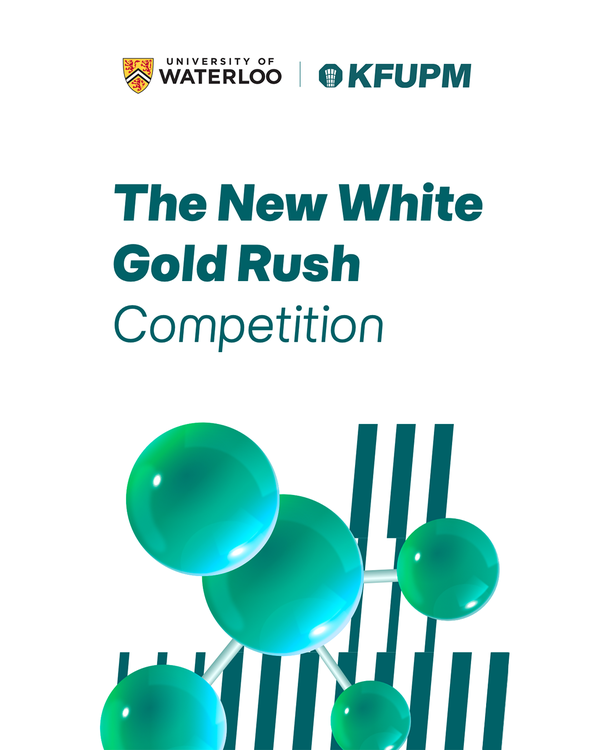
The New White Gold Rush
In-Person Event CompetitionNatural Hydrogen Competition “The New White Gold”
Fall 2025
Competition Overview
Are you ready to tackle one of the world’s biggest energy challenges?
The discovery and utilization of oil, often referred to as "black gold," has been a cornerstone of the energy industry for the past century. Over the years, a comprehensive understanding of the petroleum system has been developed, enabling the efficient exploration and production of this valuable resource. However, with the growing global demand for sustainable and environmentally friendly energy sources, a new era of energy production is emerging, with hydrogen being touted as the "new white gold."
Natural hydrogen, in particular, has the potential to be a viable source of future energy, driven by increasing interest in reducing carbon emissions and mitigating climate change. To fully realize the potential of hydrogen as a clean energy source, it is essential to understand the underlying hydrogen systems, including the production, migration, and accumulation of hydrogen in various rock types and geological conditions. Developing a deeper understanding of these complex systems is crucial for the identification and exploitation of natural hydrogen resources.
Therefore, the challenge is to develop a method to identify the hydrogen system, similar to the way we develop a petroleum system.
Why Join?
An opportunity to lead, learn, and leave a mark
1- Be part of the global clean energy transition
2- Work with peers from two world-class universities (KFUPM & University of Waterloo)
3- Gain exposure to international judges, mentors, and industry leaders
Guiding Questions for the Competition
To shape your research and presentations, consider the following six themes:
- Source & Origin – What are the geological sources of natural hydrogen, and how is it generated (e.g., water–rock interaction, serpentinization, radiolysis)?
- Migration & Accumulation – Through what processes and pathways does hydrogen migrate, and how might it accumulate in underground reservoirs similar to petroleum traps?
- Exploration & Drilling – Which tools, techniques, or adaptations from the petroleum industry could be applied to safely and effectively explore and drill for natural hydrogen?
- Extraction & Transportation – What are the main technological, environmental, and safety challenges in extracting, storing, and transporting natural hydrogen?
- Sustainability & Impact – How can natural hydrogen contribute to reducing carbon emissions and advancing long-term energy security while minimizing impacts on ecosystems and groundwater?
- Economics – How can we evaluate economic feasibility, and what screening indicators should be considered?
Students are expected to address each of these criteria in their final presentation, but may emphasize those most relevant to their group’s expertise.
Who Can Participate?
- Open to all undergraduate students (sophomore and above) at KFUPM and the University of Waterloo
- Students must compete as a team of 3–4 members
Timeline
Idea Submission Deadline: 14 October 2025
Preliminary Rounds- held Separately at each campus: 22 October 2025
Final Round- in person at KFUPM): 19 November 2025
Registration
The Natural Hydrogen Competition is more than a contest — it’s your chance to be part of the clean energy revolution, represent your university, and gain international exposure. Whether you win or not, you’ll walk away with new skills, new connections, and a global perspective.
Don’t miss this opportunity — form your team, register today, and submit your proposal before 11October 2025!